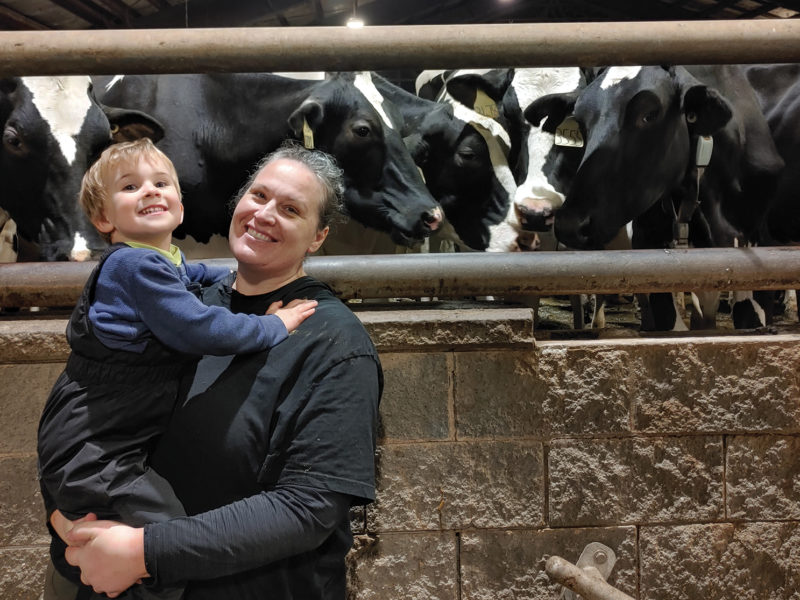VICTORIA – The province is preparing a new regulation to allow property owners in the Agricultural Land Reserve to have a secondary dwelling without Agricultural Land Commission approval.
“For almost 50 years, BC’s agricultural land reserve (ALR) has existed to encourage farming and protect farmland,” said BC agriculture minister Lana Popham said in Facebook post highlighting a factsheet on the changes. “It should go without saying that farmers need a place to live, and that many non-farmers live in the ALR. We are now finalizing changes that will create more residential opportunities in the ALR.”
The new rules follow a public consultation last year and will “provide more flexibility to help farming families thrive and to benefit non-farmers living in the ALR.” The consultation included submissions from 29 local governments as well as 257 individuals and associations.
According to the factsheet, the new rules will “enable ALR landowners to have both a principal residence (that could include a secondary suite) and a small additional residence, whether or not there is farming activity on the property.”
The changes please Meghan McPherson, a Comox Valley landowner who led the charge against the original regulation in 2019.
Critics argued that the restrictions on secondary residences limited the ability for extended families to live on the same property, impeded agritourism and left many unable to obtain insurance for existing dwellings that could not be rebuilt under the new rules.
“I’m hopeful that it will relieve a majority of the pressure that’s been felt by the housing restrictions,” she says. “We’re all on standby, still waiting for the official announcement on what the changes are going to look like so we can begin to make plans and proceed with our lives.”
District A Farmers Institutes president Raquel Kolof was also pleased with the change, which limited her ability to secure financing for an expansion of her farm in Gibsons.
“The proposed changes … would go a long way to help farmers stay afloat in these challenging times,” she says, noting the frustration the restrictions created for a number of families and small-scale farm operations.
Bill 52 was a surprise
The new regulation backtracks from an initial regulation designed to give force and effect to Bill 52, passed in 2018. Sprung without notice on property owners in February 2019, the new regulation was designed to support farming but effectively outlawed most forms of secondary residences.
Many landowners in the process of securing manufactured homes for their properties were caught offguard.
An outcry over the changes led to a temporary reprieve in which landowners were given extra time to obtain the permits and authorizations required to situate manufactured homes for immediate family members on their properties. It has been extended three times, with the latest extension running until December 31, giving local governments time to adjust their bylaws to accommodate the new regulations.
However, the adjustments may include implementing their own restrictions on the kinds of housing allowed on properties within the ALR. While some larger municipalities will likely try to contain residential development, McPherson hopes rural municipalities will be more lenient
“We’ve fought really hard to have access to basic, modest housing in rural parts of the province, and to then have local governments restrict that further is definitely a really concern for some people,” she says.
McPherson halted her own bid to place a manufactured home on her property because it would jeopardize her ability to rebuild the primary residence should it burn or otherwise be significantly damaged.
“That was too much risk for my family,” she says.
Happily, her neighbour’s property came up for sale, allowing her parents to move in next door.
But the changes probably won’t please everyone.
“There’s some people who proceeded with getting a modular home because they thought there was only a little window and it was their only opportunity to ever have a second house,” she says. “Now, any month or any week we could hear that they could have built a cabin.”
Nevertheless, the changes are probably the best property owners could have hoped for under the circumstances.
“She doesn’t completely want to rewrite the changes that she made, but she is trying to find reasonable flexibility for the people who are ‘non-farmers,’” she says, adding that it’s even better than a straight backtrack because a second home won’t be contingent on farming activity or the ALC. “What we’ll be left with, if the changes go through the way she’s implying it will, is … a better option than what was in place before.”


 Canada holds off Asian giant hornet restrictions
Canada holds off Asian giant hornet restrictions